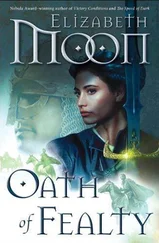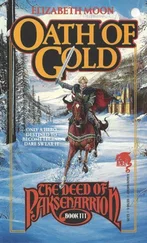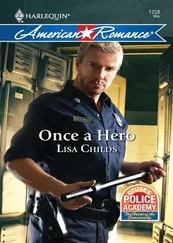Elizabeth Moon - Once a Hero
Здесь есть возможность читать онлайн «Elizabeth Moon - Once a Hero» весь текст электронной книги совершенно бесплатно (целиком полную версию без сокращений). В некоторых случаях можно слушать аудио, скачать через торрент в формате fb2 и присутствует краткое содержание. Жанр: Космическая фантастика, Боевая фантастика, на английском языке. Описание произведения, (предисловие) а так же отзывы посетителей доступны на портале библиотеки ЛибКат.
- Название:Once a Hero
- Автор:
- Жанр:
- Год:неизвестен
- ISBN:нет данных
- Рейтинг книги:3 / 5. Голосов: 1
-
Избранное:Добавить в избранное
- Отзывы:
-
Ваша оценка:
- 60
- 1
- 2
- 3
- 4
- 5
Once a Hero: краткое содержание, описание и аннотация
Предлагаем к чтению аннотацию, описание, краткое содержание или предисловие (зависит от того, что написал сам автор книги «Once a Hero»). Если вы не нашли необходимую информацию о книге — напишите в комментариях, мы постараемся отыскать её.
Once a Hero — читать онлайн бесплатно полную книгу (весь текст) целиком
Ниже представлен текст книги, разбитый по страницам. Система сохранения места последней прочитанной страницы, позволяет с удобством читать онлайн бесплатно книгу «Once a Hero», без необходимости каждый раз заново искать на чём Вы остановились. Поставьте закладку, и сможете в любой момент перейти на страницу, на которой закончили чтение.
Интервал:
Закладка:
She went up the stairs by instinct; she was not seeing the brass rails holding the carpet snug to the risers, the scuffs on the steps themselves. Her body knew how to get up the stairs, around the corners, where to find the switches that gave her absolute privacy.
She leaned against the wall, turned on the cold-water tap, and put her hands into it. She wasn’t sure why. She wasn’t sure of anything, including the passage of time. The water cut off automatically, just as it would aboard ship, and she nudged the controls again. Abruptly she threw up; the curdled remains of lunch slopped into the clean swirl of water and disappeared down the drain with it. Her stomach heaved again, then settled uneasily. She cupped her hand under the faucet, and drank a handful of the cold, sweet water. Her stomach lurched, but steadied. She had never been prone to nausea. Not even then, not even when the pain was so bad she’d been sure she was being torn apart. The real pain, not the imagined pain induced by fever dreams.
In the mirror, she looked like a stranger—a gaunt old woman with flyaway dark hair, face streaked with tears and vomit. This would never do. Methodically, Esmay took a towel from the rack, wet it, and cleaned her face and hands. She rubbed her face hard with the dry end of the towel, until the blood returned and the greenish tinge of nausea disappeared under a healthy pink. She attacked her hair with damp hands, flattening the loose strands, then dried her hands. The water stopped again, and this time she didn’t turn it back on. She folded the damp towel, and hung it on the used rack.
The woman in the mirror now looked more familiar. Esmay forced a smile, and it looked more natural on that face than it felt on her own. She should put on something, she thought, looking to see if she’d spotted her shirt. A few drops showed, dark against the pale fawn. She would change. She would change into someone else . . . her mind stumbled over something in the smoke that was all she could see.
Still navigating by habit, she unlocked the door, and returned to her own room. By the time she’d taken off the shirt, she knew she’d have to change from the skin out. She did that as quickly as she could, taking what lay on top in her drawers, and glancing at herself only long enough to be sure the wide collar lay flat and untwisted around her neck. The pallor had gone; she looked like Esmay Suiza again.
But was she? Was Esmay Suiza a real person? Could you build a real person on a foundation of lies? She fought her way through the choking dark clouds in her mind, trying to cling to what she remembered, what Seb Coron had told her, to any logic that could connect them.
When the smoke-cloud in her mind cleared, the first thing she recognized was smug relief: she had been right . She had known the truth; she had made no mistakes. Her adult mind intruded: except for the stupidity of leaving home in the first place, the idiocy of a child trying to travel cross-country in the midst of a civil war. She batted that critical voice down. She had been a child; children were, by definition, ignorant of some things. In the essentials—in recognizing what she had seen, in telling the truth about what happened—she had been right.
Rage followed that moment of delight. She had been right, and they had lied to her. They had told her she was mistaken—that she was confused by the fever . . . or was there even a fever? She had started to call up the household medical records before her critical voice pointed out that of course the records would show such an illness, such a hospitalization. It could have been fabricated, all of it—how would she know? And to whom did she want to prove it?
To everyone, at that moment. She wanted to drag the truth before her father, her uncle, even Papa Stefan. She wanted to grab them by the neck, force them to see what she had seen, feel what she had felt, admit that she had in fact endured what she had endured.
But they already knew. Exhaustion followed exhilaration just as it followed fever; she could feel the familiar languor in her veins, dragging her down to immobility, to acquiescence. They knew, and yet they had lied to her.
She could keep her own secret, and let them think theirs safe, run away again as she had run before. They would be comfortable still, indulged by her complicity.
Or she could confront them.
She looked again in the mirror. That was the person she would become, if she became an admiral like Heris Serrano’s aunt. The diffidence, the uncertainty, that had mocked her so often had burned away in the last hour. She did not yet feel what she saw in that face, but she trusted the eyes that blazed out at her.
Would he still be in the conservatory? How long had this taken? The clock surprised her; she had been upstairs only half a local hour. She headed for the conservatory, this time with all senses fully awake. It might have been the first time she came down the stairs . . . she felt the slight give in the sixth from the bottom, noticed a loose tack on the railing side of the carpet, spotted a nick in the railing itself. Every sight, every smell, every sound.
Her father and Berthol were stooped over a tray of bedding plants with one of the gardeners. Her new clarity of vision noticed every detail of the plants, the notched petals of fire-orange and sun-yellow, the lace-cut leaves. The gardener’s dirt-blackened fingernails where his hands were splayed out on the potting table. The red flush along the sides of her uncle’s neck. White lines in the skin of her father’s face, where he had squinted against the sun so long that the creases had not tanned. A loose thread on the button of Berthol’s sleeve button.
Her foot scraped on the tile floor because she let it; her father looked up.
“Esmaya . . . come see the new hybrids. I think they’ll do very well in the front urns . . . I hope old Sebastian didn’t wear you out.”
“He didn’t,” Esmay said. “In fact, I found him quite interesting.” Her voice sounded perfectly calm, perfectly reasonable, to her, but her father started.
“Is something wrong, Esmay?”
“I need to talk to you, Father,” she said, still calm. “Perhaps in your study?”
“Something serious?” he asked, not moving. Rage surged through her.
“Only if you consider a matter of family honor serious,” she said. The gardener’s hands jerked; the plants shivered. The gardener reached for the box of planters, and he murmured something. Her father lifted his chin, and the man grabbed the box and scuttled away, out the back door of the conservatory.
“Do you want me to leave?” her uncle asked, as if he were sure she would say no.
“Please,” she said, this time testing her own power to put a sting in it. He flinched, his eyes shifting to her father, then back to her.
“Esmay, what . . . ?”
“You will know soon enough,” Esmay said. “But I would prefer to speak to Father alone, just now.”
Berthol flushed, but turned away; he did not quite slam the door going out.
“Well, Esmaya? There was no need to be rude.” But her father’s voice had no power in it, and she heard an undertone of fear. The little muscles around his eyes and nose were tense; the contrast between his tanned skin and the untanned creases had almost disappeared. If he’d been a horse, his ears would have been flat and his tail switching nervously. He should be able to put the sum together: she wondered if he would.
She came toward him, running her hand through the fronds of one of the sweetheart palms; it still tickled. “I talked to Seb Coron—or rather, he talked . . . and I found it most interesting.”
“Oh?” He was going to brazen it out.
“You lied to me . . . you said it was all a dream, that it didn’t happen . . .”
Читать дальшеИнтервал:
Закладка:
Похожие книги на «Once a Hero»
Представляем Вашему вниманию похожие книги на «Once a Hero» списком для выбора. Мы отобрали схожую по названию и смыслу литературу в надежде предоставить читателям больше вариантов отыскать новые, интересные, ещё непрочитанные произведения.
Обсуждение, отзывы о книге «Once a Hero» и просто собственные мнения читателей. Оставьте ваши комментарии, напишите, что Вы думаете о произведении, его смысле или главных героях. Укажите что конкретно понравилось, а что нет, и почему Вы так считаете.












